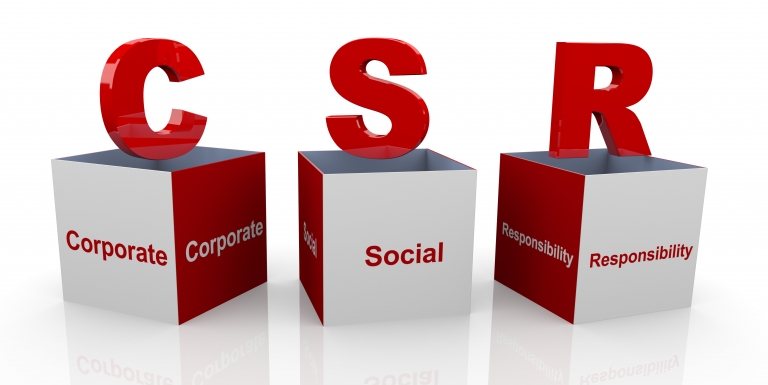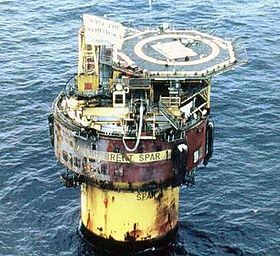
Society must be the conscience of the corporation
by Sarah Keogh
Corporations are large firms that are considered a legal entity, much like people, and can act accordingly in the global markets by buying and selling goods, entering into contracts and can sue and be sued. In the current global economy, corporations are undoubtedly the largest, most influential component. When comparing corporate sales to GDP, 51 out of 100 of the world’s largest economies would be corporations and not countries, according to UNESCO. Corporations are constructed socially, they are in constant dialogue with society, and are shaped and changed as a result. Corporations are often owned by countless shareholders and the employees are simply there to facilitate profit making for those shareholders. In this limited liability corporate environment, the corporation functions as a part of society with no conscience and little liability, allowing it to partake in any action that will increase profit. This can be seen most obviously at the cost of the environment, however in recent years worldwide social environmental awareness has forced corporations to alter their behaviour, or at least appear to. In this blog, I will highlight the importance of continued social pressure on corporations in order to limit their environmental damage.

Brent Spar Oil Platform (Source: Wikipedia, fair use license)
The 1990s saw a major shift in society’s views of corporations, mainly to include their environmental impact. As environmental awareness increased through the 1990s, corporations were compelled to respond to the growing pressure on them. In 1995, Royal Dutch Shell “[…] stood accused of complicity in the execution of Ken Saro Wiwa and eight other activists in Nigeria, as well as being hounded by Greenpeace over the decision to sink the Brent Spar oil platform” (Corporate Watch, 2006). The impact of the series of PR disasters for Shell that year was much greater than many expected, as mainstream society showed their outrage by boycotting the company. Many corporations began to realise that, even though they may be operating within the bounds of the law, if society believed they were being harmful to the environment, business would suffer. This realisation led to the rise of Corporate Social Responsibility (CSR) as well as an increasing expectation to produce sustainability reports and environmental impact statements. However, there has been much debate over how genuine and effective CSR actions by corporations are in reducing their negative practices, as is highlighted in the 2006 Corporate Watch Report What’s wrong with corporate social responsibility.
Corporate Social responsibility includes much more than the environment, it can also be related to improvements in working conditions, community involvement and generally any positive contribution to society. The Corporate Watch Report suggests that the only reason corporations partake in corporate social responsibility are because it has a positive effect on profit. In general, corporations would not undertake any action that didn’t improve profit, that is after all their main purpose, and good corporate social responsibility can make them more appealing to investors. Corporate social responsibility had its rise in the 1990’s following the rise of environmentalism and anti-corporation movements. Shell also wisely adopted Corporate Social responsibility initiatives after their PR disasters. Of course, there is a risk that corporations are lying about their corporate social responsibility after all the reports are often made by the corporations themselves. However, they risk a major public backlash if they are ever caught, and in today’s increasingly recorded world it would be difficult to hide. Also, with so many non-profit organisations as well as governments looking into the activities of corporations, they risk being exposed on a database such as The top 100 Corporate criminals of the 1990’s.
As long as corporations are making some sort of effort for their impact on the planet, it doesn’t matter what their motivations are. As long as corporations know that society cares about the environment, they also must appear to care about the environment to maintain business, however, this has its limits. A 2010 Guardian article discusses that research of the world’s top 3000 firms caused an estimated US$2.2 trillion of damages to the environment in 2008, and if made to pay would lose one third of their profits. This highlights the inextricable link between environmental exploitation and the profit of firms. Corporate social responsibility practices clearly barely scratch the surface when it comes to the environmental destruction firms cause, however it is a step in the right direction. For more than 150 years of the industrial age firms have severely depleted the world’s finite resources, and only in the last 30 years have they begun to take progressive action towards reducing their negative impact in the form of corporate social responsibility. All this progress as a result of pressure a united global society put on corporations. This is why it is vital that society as a whole, with their voices being heard through NGOs or more directly through protest and boycotts, continues to place pressure on corporations to act with a moral compass in mind.
Corporations are profit-driven firms that function within society and are thus largely affected by the changes that occur in broader society. They often act without a conscience, with no individual within a firm being liable for responsibility, as is the structure of the limited liability corporations that dominate the economic landscape today. However, during the 1990’s, after several major incidents involving Shell, society and the rest of the business world were awoken to the need for corporate social responsibility. Through environmental awareness in society and protests carried out by organisations such as Greenpeace, pressure is kept of corporations to keep their environmental damage to a minimum. It is necessary that this pressure is continued as environmental degradation begins to further affect our lives as the effects of climate change are felt more severely.
Bibliography:
Corporate Watch (2006). What’s Wrong with Corporate Social Responsibility?. Oxford: Corporate Watch. [Accessed 24 Apr. 2017].
Corporate Crime Reporter. (accessed 5.22.17).
Corporate Power Facts and Stats. (accessed 5.22.17).
World’s top firms cause $2.2tn of environmental damage, report estimates | Environment | The Guardian (accessed 5.22.17).

0 Comments